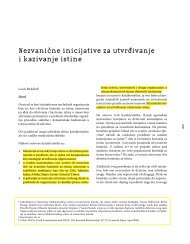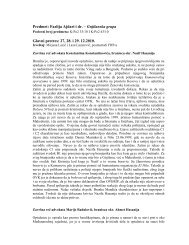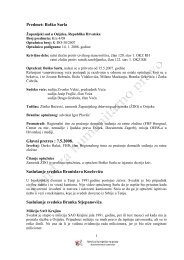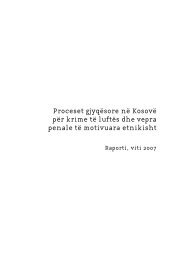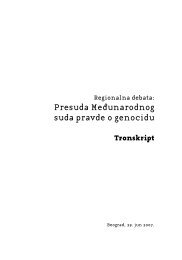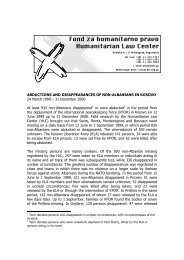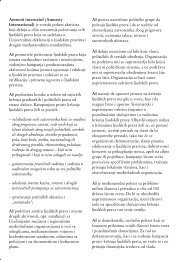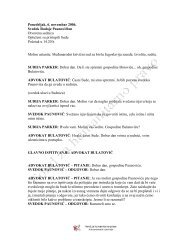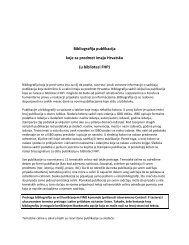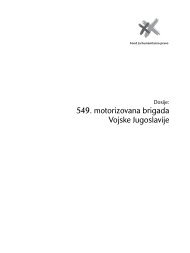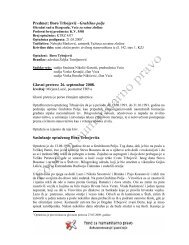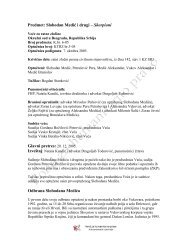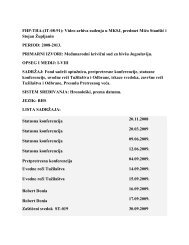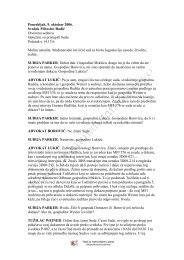here - Humanitarian Law Center/Fond za humanitarno pravo
here - Humanitarian Law Center/Fond za humanitarno pravo
here - Humanitarian Law Center/Fond za humanitarno pravo
You also want an ePaper? Increase the reach of your titles
YUMPU automatically turns print PDFs into web optimized ePapers that Google loves.
how it is possible that a person elected to such an important judicial office and who heads the<br />
government body whose task is to strictly and unreservedly implement the law, was unaware of<br />
the details of this law.<br />
A second reason why the Office of the War Crimes Prosecutor dropped the charges, according to<br />
Vukčević, was the decision by the Serbian government of 2000-2002 to treat the LAPBM as a<br />
terrorist organisation rather than a party to the armed conflict. Consequently, the criminal<br />
offences committed by the LAPBM cannot be considered war crimes, because in order for an act<br />
to be considered a war crime it must fulfil the necessary requirement of having been committed<br />
during an armed conflict.<br />
However, contrary to prosecutor Vukčević’s claims, offences committed in 2000-2001 in south<br />
Serbia, both by members of the LAPBM and members of Serbian forces may be treated as war<br />
crimes because an internal armed conflict between the LAPBM and Serbian forces was ongoing,<br />
something which can be clearly inferred from the ceasefire agreement in southern Serbia,<br />
brokered by Peter Faith, the Special Envoy of the NATO General Secretary, and signed by the<br />
LAPBM and the Serbian authorities in 2001. Article 3 of this agreement states as follows: “The<br />
parties to the agreement recognise and abide by the Additional Protocol to the Geneva<br />
Conventions (Protocol II) of 12 August 1949 relating to the protection of victims of noninternational<br />
[internal] conflicts.”<br />
Many of the circumstances surrounding these arrests indicate that they were politically<br />
motivated: they took place two days before the Serbian general election and gained the Minister<br />
of the Interior, Ivica Dačić, who ran for President of Serbia, a lot of publicity during the<br />
blackout period. Contradictory, inadequate and divergent public statements made by<br />
representatives of various institutions on this occasion, reveal that the arrests were hastily<br />
organised. And the Office of the War Crimes Prosecutor, in acting the way it did, not only 'went<br />
on the campaign trail' but also sent a poor message to the victims of the gravest human rights<br />
violations and the general public – that prosecution of war crimes in Serbia depends not just on<br />
evidence and applicable laws but also on politics.<br />
8




